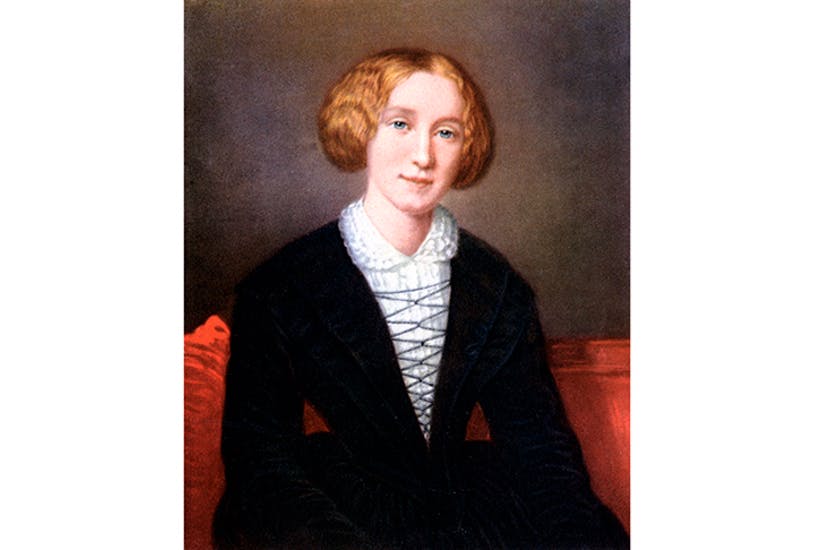George Eliot deserves some praise 200 years after her birth. But the sort of praise she is getting is predictably blinkered by the literary assumptions of our day. She is celebrated as the great fore-runner of the secular feminist literary culture of today, as if she was Margaret Atwood in lace, or Zadie Smith in a bonnet. She is probably the number one pin-up of agnostic literary types, their secular nearly-saint. Woolf scores slightly higher in sexual politics top trumps, but few of us even pretend to enjoy reading her work. So it’s Eliot who is the canonical darling of the bookish lady journalists who are our prime cultural gate-keepers.
I loved her novels as an adolescent. But it does not feel very acceptable to speak about the reasons why I loved them. One reason was that I fell in love with the spirited heroines, being the sort of dreamy old-fashioned oddball who was shy of non-fictional females.

Get Britain's best politics newsletters
Register to get The Spectator's insight and opinion straight to your inbox. You can then read two free articles each week.
Already a subscriber? Log in







Comments
Join the debate for just $5 for 3 months
Be part of the conversation with other Spectator readers by getting your first three months for $5.
UNLOCK ACCESS Just $5 for 3 monthsAlready a subscriber? Log in